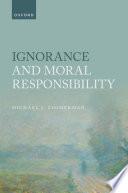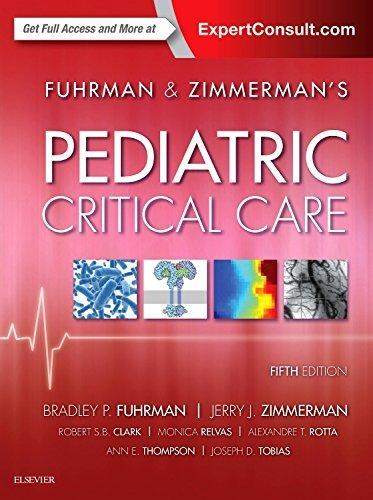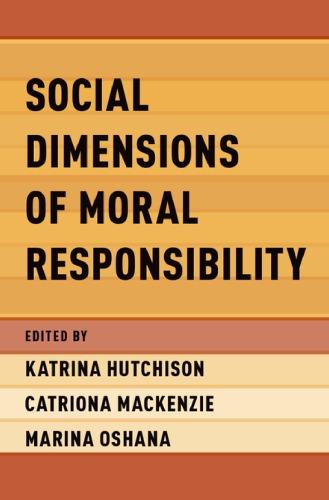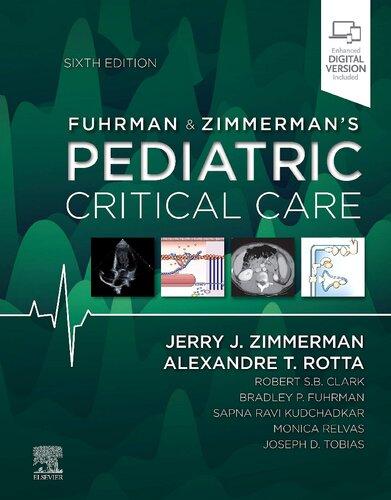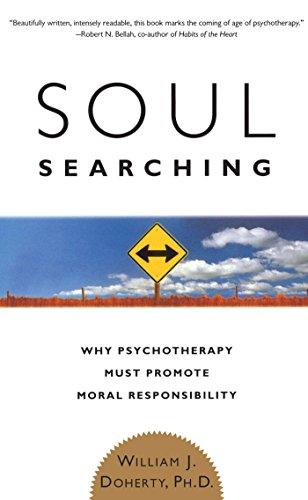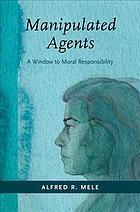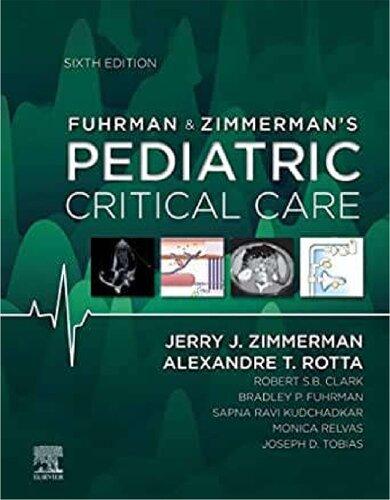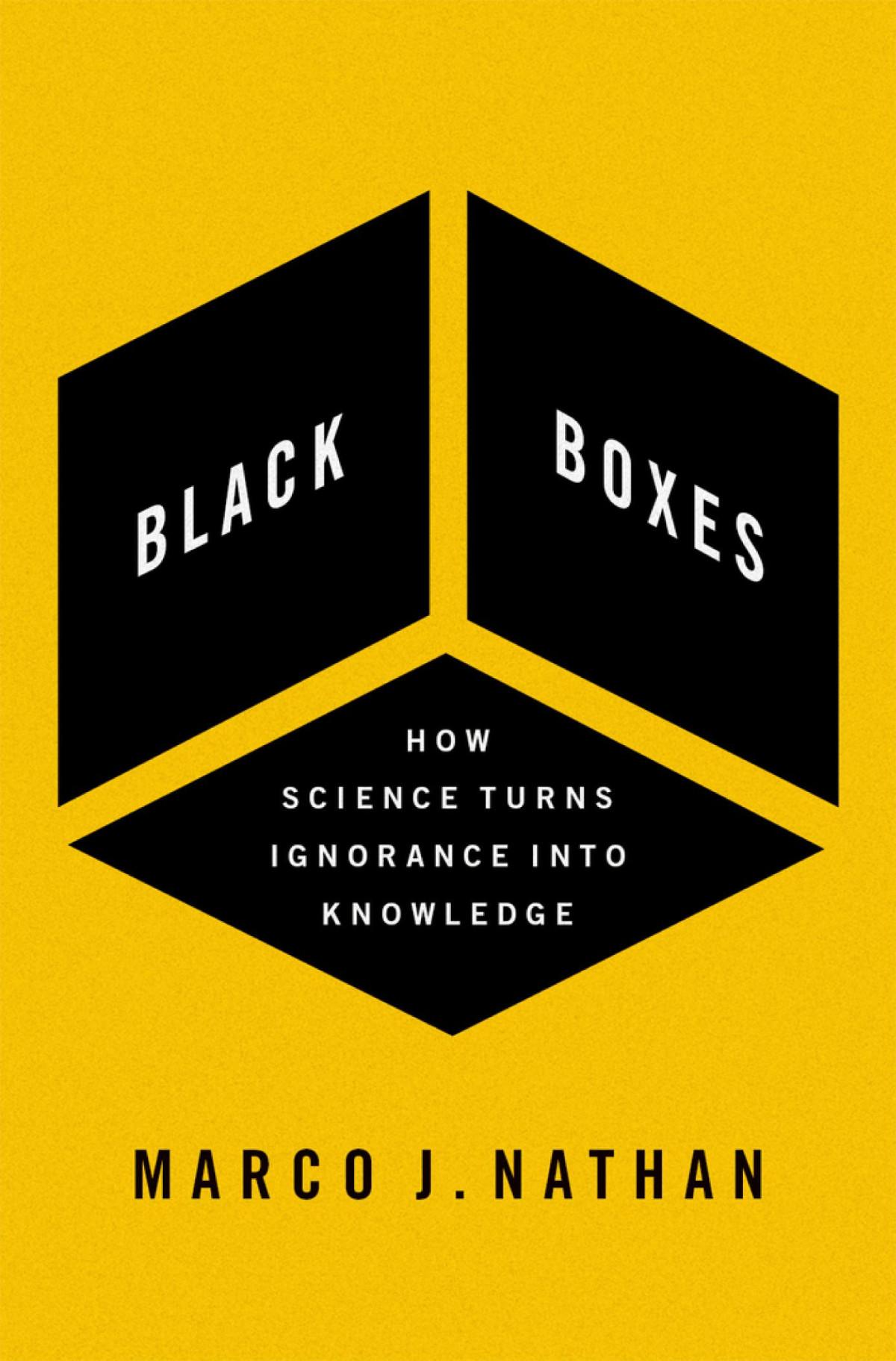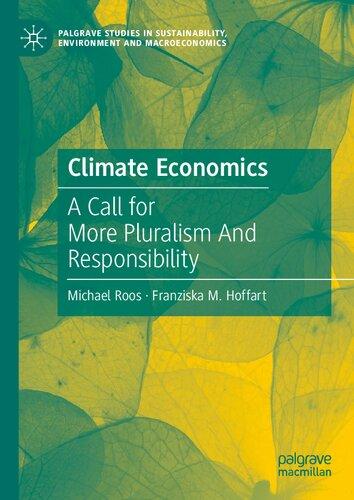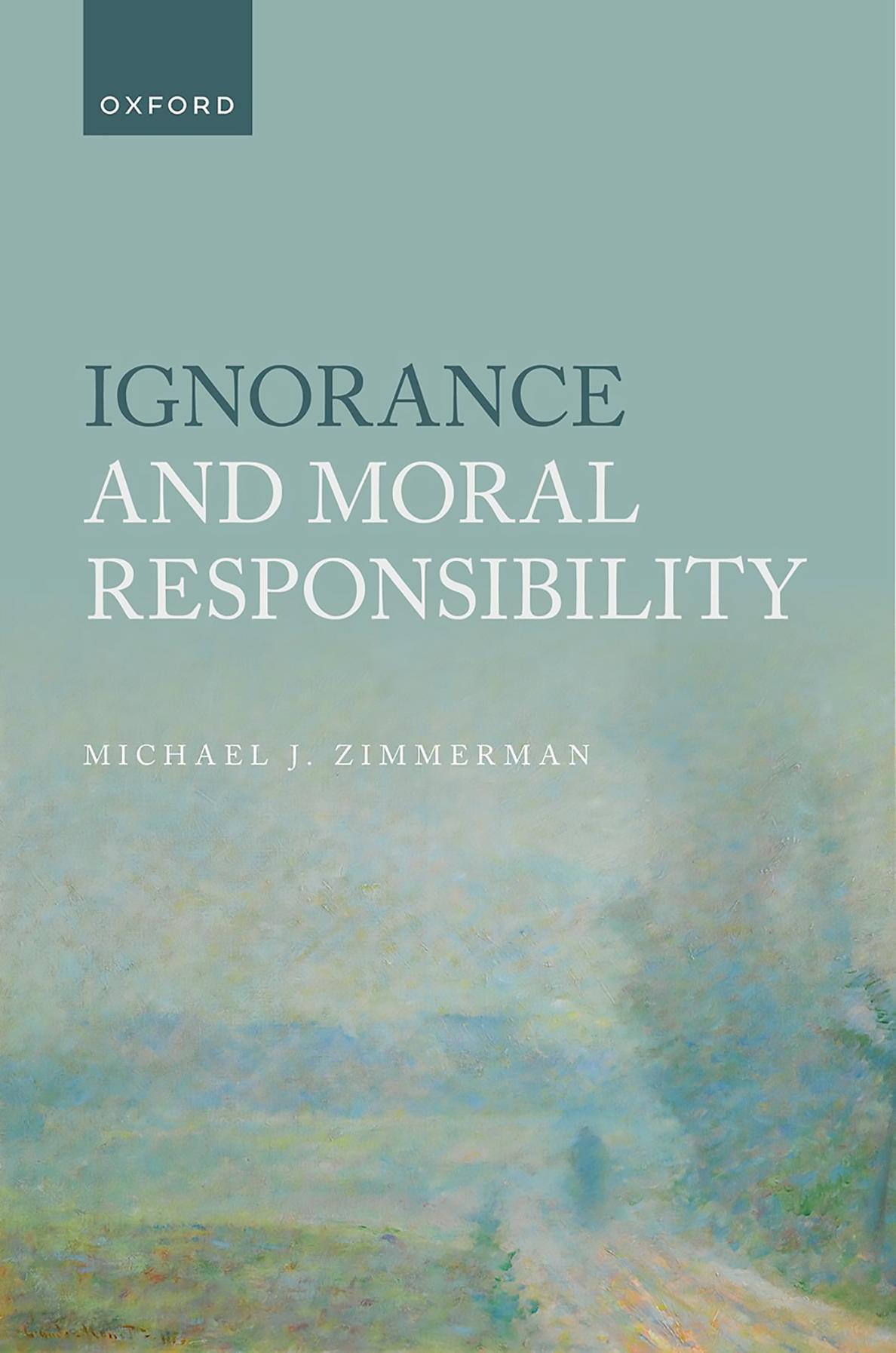IgnoranceandMoral Responsibility
MICHAELJ.ZIMMERMAN
GreatClarendonStreet,Oxford,OX26DP, UnitedKingdom
OxfordUniversityPressisadepartmentoftheUniversityofOxford. ItfurtherstheUniversity’sobjectiveofexcellenceinresearch,scholarship, andeducationbypublishingworldwide.Oxfordisaregisteredtrademarkof OxfordUniversityPressintheUKandincertainothercountries
©MichaelJ.Zimmerman2022
Themoralrightsoftheauthorhavebeenasserted FirstEditionpublishedin2022
Impression:1
Allrightsreserved.Nopartofthispublicationmaybereproduced,storedin aretrievalsystem,ortransmitted,inanyformorbyanymeans,withoutthe priorpermissioninwritingofOxfordUniversityPress,orasexpresslypermitted bylaw,bylicenceorundertermsagreedwiththeappropriatereprographics rightsorganization.Enquiriesconcerningreproductionoutsidethescopeofthe aboveshouldbesenttotheRightsDepartment,OxfordUniversityPress,atthe addressabove
Youmustnotcirculatethisworkinanyotherform andyoumustimposethissameconditiononanyacquirer
PublishedintheUnitedStatesofAmericabyOxfordUniversityPress 198MadisonAvenue,NewYork,NY10016,UnitedStatesofAmerica
BritishLibraryCataloguinginPublicationData Dataavailable
LibraryofCongressControlNumber:2022936162
ISBN978–0–19–285957–0
DOI:10.1093/oso/9780192859570.001.0001
PrintedandboundintheUKby TJBooksLimited
LinkstothirdpartywebsitesareprovidedbyOxfordingoodfaithand forinformationonly.Oxforddisclaimsanyresponsibilityforthematerials containedinanythirdpartywebsitereferencedinthiswork.
Preface
Thereisalongtradition,stemmingfromAristotle,accordingtowhichonebears moralresponsibilityforsomeeventjustincaseonesatis fiestwoconditions.The firstconditionisthattheevent’soccurrencemusthavebeenwithinone’scontrol. Thesecondisthatitsoccurrencemusthavebeenwithinone’sken.Itisthe first conditionthathasreceivedthelion’sshareofattentionfromphilosophers.Much ofthisattentionhasbeendevotedtothepuzzleposedbytheapparentfactthat satisfactionofthisconditionisconsistentwithneitherdeterminismnorindeterminism.Indeed,itwasmyintroductiontothispuzzleinanundergraduatecourse thatItookover50yearsagothat firstsparkedmycuriosityaboutmoralresponsibility,andmyinterestintheconcepthasneverwanedsince.
ItwasinpartbecauseIdespairedofever findingasatisfactorysolutiontothe puzzleaboutcontrolthatIturned,some10yearslater,toaconsiderationofthe secondconditionofresponsibility.ButIquicklyranintoanotherpuzzlehere,too, whichissimplythatmanyofoureverydayascriptionsofresponsibilityapparently failtoconformtothiscondition.Foralthoughweoftentreatignoranceasan excuseforwrongdoing,wealsooftendon’t.Wedon’twhenwejudgethatthe personinquestion “shouldhaveknownbetter.” Evenifthisjudgmentisaccurate, though,howisitsupposedtosufficeforresponsibilityforthewrongdoingin question?Thispuzzlestruckmeaslikelytobemoretractable,andsoIdecidedto lookintoit.Icametotheconclusionthatignoranceprovidesanexcusefor wrongdoingfarmoreoftenthaniscommonlythought,andhencethatmanyof oureverydayascriptionsofresponsibilityaremistaken.Itooka firststabat presentingmyargumentforthisconclusioninthemid-1980s,andIhaveoffered variousversionsofitsincetheninacontinuingefforttoimproveonit.
Theepistemicconditionofmoralresponsibilityisnolongerneglected.Onthe contrary,ithascomeunderincreasedscrutinyinrecentyears,someofwhichhas beendevotedtomyargument.Althoughsomeofthosewhohaveconsideredthe argumentarepreparedtoacceptitsconclusion,manyarenot whichishardly surprising,givenitsrevisionarynature.Tobeginwith,muchoftheresistanceto theargumentprettymuchtooktheformof, “Thatcan’tberight.” Ifeltentitledto ignorethisreaction,sincenoattemptwasmadetoidentifyjustwherethe argumentsupposedlywentwrong.Morerecently,however,therehavebeen severalcriticaldiscussionsthatpurporttoprovidereasonsforrejectingoneor otherofthepremisesintheargument,anditbecamecleartomethatIneededto revisititandtheissuessurroundingit.Thisbookistheresultofmydoingso.
InChapter1Ipresentacase—“basedonatruestory,” asthesayinggoes in whichatragedyoccurs,onethatitseemscouldeasilyhavebeenprevented.In casesofthissortthequestionnaturallyarises, “Whoistoblame?” Inthiscasethe tragedywouldnothaveoccurred,hadoneormoreofmanypeoplebehaved differently.Thesepeoplethusappeartosatisfythecontrolconditionofmoral responsibility.(Insosaying,Iamofcourseputtingthepuzzleaboutthiscondition tooneside.)Butthevastmajorityofthesepeoplehadnoideathatsuchatragedy mightoccur,andsoit’snotclearhowtheycouldproperlybesaidtosatisfythe epistemiccondition.Thecommonviewisthat,ifanyofthesepeoplecouldand shouldhaveforeseenthetragedy,thenthefactthattheydidn’tforeseeitaffords themnoexcuse.Butthisclaimraisesthequestionhowforeseeabilityinthe absenceofforesightispossibleandwhy,ifitis,itunderminesanexcusethat onewouldotherwisehave.Considerationofthisquestionleadsmetomy argument whichinthisbookIcalltheArgumentfromIgnorance thatignoranceprovidesanexcuseforwrongdoingfarmoreoftenthaniscommonly thought.Ipresenta firstdraftofthisargumenttowardtheendofthechapter andnotethatitappliesnotonlytowhatIcallincidentalmoralignorance (ignoranceofwrongdoingthatisrootedinsomenon-moralmistake)butalsoto whatIcallfundamentalmoralignorance(ignoranceofwrongdoingthatisrooted insomemoralmistake).
TheArgumentfromIgnoranceis,ofcourse,anargumentabouttherelation betweenignoranceandmoralresponsibility,andinthechaptersimmediately followingthe firstIundertakeanextendedinquiryintotheseconcepts.In Chapter2Idistinguishbetweenvariouskindsofresponsibility,bothmoraland non-moral,andhomeinonthatparticularkind moralblameworthiness with whichtheArgumentisconcerned.Mydiscussionpromptsareformulation a refinement oftheArgument,afterwhichIembarkonalengthyinvestigation intothenatureofmoralblameworthiness,attendingseparatelytoboththeblame andtheworthinessinvolved.InChapter3Iturntoaconsiderationofthenature ofignoranceandexplainwhyitisthat,forthepurposesofthisbook,weshould focusinparticularonthefailuretobelievethatoneisdoingwrongandoncasesin whichthewrongdoinginquestionistobeattributedtosuchafailure.This discussionpromptsseveralfurtherreformulationsoftheArgument.Then,in Chapter4,Iturnmyattentiontothecontrolconditionofmoralresponsibility, sincethisconditionplaysakeyroleintheArgument,despitethefactthatitisthe epistemicconditionthatoccupiescenterstageinthebook.
Oncethesepreliminariesareoutoftheway,Iinvestigatetheimplicationsofthe ArgumentfromIgnoranceregardingculpableignorance(Chapter5),negligence (Chapter6,inwhichIoffertwofurtherreformulationsoftheArgument),recklessness(Chapter7),andfundamentalmoralignorance(Chapter8).Mypurpose indoingsois, first,torevealthenatureofthesemuch-discussedbut,Ibelieve, often-misunderstoodphenomenaand,second,toexplainjusthowitisthatthe
Argument’simplicationsregardingthemarerevisionary.Finally,inChapter9, IaddressanumberofchallengestotheArgumenttobefound,eitherimplicitlyor explicitly,intherecentliterature.Iconcedethatmanyofthesechallengeshave meritbutcontendthattheArgument,reformulatedonelasttime,survivesthem. Myoverarchingaiminthebookissimplythatofimprovingourgraspofthe natureofmoralresponsibility.TheoutlinethatIhavejustprovidedisvery meager,butitshouldprovidesomeideaofthecontentsandthepurposeofthe book.AperusaloftheTableofContentsshouldalsobeofsomehelp,aswould takingalookattheopeningparagraphsineachofChapters2to9,wherea summaryisgivenofwhatistocomeinthechapter.
Finally,Ishouldperhapssaysomethingabouttherelationbetweenthisbook andmylastbook,whosetitleis IgnoranceandMoralObligation.Thatbookwas concernedwithhowitisthatignoranceaffectsourobligationsregardinghowthe futureistounfold atopiconwhichIbeganworkamere20yearsago.Thisbook isconcernedwithhowignoranceaffectsourresponsibilityforhowthepasthas unfolded.ForreasonsthatIgiveinChapter2,thesetwoissuesarelargely independentofoneanother;asaresult,thereisverylittleoverlapbetweenthe twobooks,althoughmy findingsintheearlierbookdoplayanimportantrolein mydiscussionofrecklessnessinChapter7ofthisbook.
2.1.1Somekeydistinctions29
2.1.2Therelationbetweenblameworthinessandwrongdoing32
2.1.3Agent-evaluationandact-evaluation37
2.1.4Threekindsofmoraljudgments38
2.2Blameworthiness 41
2.2.1Thebasisofblameworthiness41
2.2.2Diversementalqualities43
2.2.3Control45
2.2.4Therelationbetweentheobjectandthebasisofblameworthiness45
2.3Theblameinblameworthiness 48
2.3.1Thinblame(andpraise)48
2.3.2Thickblame(andpraise)51
2.3.3Thickblame(andpraise)andthereactiveattitudes57
2.3.4Thickblameasessentiallyemotional60
2.3.5Thickblameasessentiallyinvolvingcertaindispositions62
2.3.6Thickblameasessentiallycallingforananswer62
2.3.7Thickblameasessentiallyconversational66
2.3.8Thickblameasessentiallyinvolvingamoralcommunity69
2.3.9Aconceptualcircle74
2.3.10Breakingthecircle78
2.4Theworthinessinblameworthiness 81
2.4.1From fittingnesstoworthiness81
2.4.2Theethicsofblame84
2.4.3Betweenblameworthinessandblamelessness87
2.5Degreesofblameworthiness 89
2.5.1Maximalblameworthiness89
2.5.2Thetwodimensionsofblameworthiness91
2.5.3Comparingandaggregatingdegreesofblameworthiness92
2.5.4Thebasisofblameworthiness93
2.5.5Fullblameworthiness96
3.Ignorance 101
3.1Knowledgeandignorance 102
3.2Believingandfailingtobelieve 106
3.2.1Knowledgeandbelief106
3.2.2Beliefsanddispositions108
3.2.3Occurrentbeliefs112
3.2.4Degreesofbelief117
3.2.5Conflictingbeliefs122
3.2.6Failingtobelieve124
3.3Actingfromignorance 126
3.4Blameworthinesswithoutwrongdoing 128
3.4.1Accuses128
3.4.2Moralrealism133
3.4.3Suberogation133
4.Control 137
4.1Volitionalcontrol 138
4.1.1Doingsomethingatwill138
4.1.2Thebilateralnatureofvolitionalcontrol139
4.1.3Direct vs.indirectcontrolandimmediate vs.remotecontrol141
4.1.4Complete vs.partialcontrol143
4.1.5Basic vs.enhancedcontrol144
4.1.6Simple vs.intentionalcontrol145
4.1.7AB-conditionalsandindirectcontrol146
4.1.8AB-conditionalsanddirectcontrol148
4.1.9Control vs.freedom153
4.1.10Possessing vs.exercisingcontrol154
4.2Simple vs.intentionalcontrol 156
4.2.1Controlandawareness156
4.2.2Reasons-responsiveness161
4.3Direct vs.indirectcontrol 166
4.4Controloveromissions 169
4.4.1Actsofomission169
4.4.2Cancontrolbepurelypassive?173
4.4.3Thelocusofdirectcontrol176
4.5Degreesofcontrol 177
4.5.1Theextentofcontrol177
4.5.2Wholecontrol178
4.5.3Awarenessofcircumstances179
4.5.4Reasons-responsiveness180
4.5.5Difficulty181
4.5.6Freedom182
4.5.7Therelationbetweendegreeofblameworthinessanddegree ofcontrol182
4.6Controloverbeliefs 183
4.6.1Doxasticvoluntarism183
4.6.2Indirectcontroloverbeliefs184
4.6.3Directcontroloverbeliefs186
4.6.4Believingatwill188
4.6.5TheArgumentagainstBelievingatWill195
4.6.6TheArgumentagainstConsideringatWill206
5.CulpableIgnorance 209
5.1.1Tracingandtracking210
5.1.2Doestracingrequiretracking?211
5.1.3Foreseeability214 5.1.4Moralluck217
5.1.5Tracingculpabilityforignorantwrongdoing225
5.2Exculpatoryculpableignorance 232
5.2.1Doesignoranceofwrongdoingeverprovideanexcuse forwrongdoing?233
5.2.2Theshadowcastbythebenightingact234
5.2.3Inculpatoryignorance236
6.Negligence
6.1Inadvertentwrongdoing
6.2.1Substandardinattentiontowhatonealreadyknows244
7.1.1Consciousnegligenceandinadvertentrecklessness257
7.1.2Actingrecklessly vs.actingknowingly260
7.1.3Consciousrisk-taking vs.consciouswrongdoing261
7.1.4Riskingharm vs.riskingwrong264
7.1.5Purposelydoingwrong271
7.2Motivatedignorance
7.2.1Varietiesofmotivatedignorance274
7.2.2Thelawonwillfulignorance276
7.2.3Thedutytoinquire278
7.2.4Motivatednon-moralignorance283
7.2.5Motivatedmoralignorance286
PARTIII:CHALLENGESTOTHEARGUMENT
9.1.1Inadvertenceandblameworthiness304
9.1.2Agent-regretandremorse306
9.1.3Morallysubstandardinadvertence311
9.2Blameworthinessandqualityofwill
9.2.1Caringformorality derevs.caringformorality dedicto
9.2.2Conscientiousnessanddoingsomethingfortherightreason318
9.2.3Moralfetishism325
9.2.4Illwill328
9.3Theuniquemoralsignificanceofvoluntarywrongdoing
TheArgumentfromIgnorance
OnOctober1,1957apromisingnewdrug,manufacturedbyChemieGrünenthal andmarketedunderthetradenameContergan,wasmadeavailabletothegeneral publicforthe firsttimeinWestGermany.Soldoverthecounter,itwaslaudedfor itssleep-inducingandanxiety-reducingproperties.ThissamedrugwasintroducedintotheUKinApril1958underthetradenameDistaval,andeventuallyit wassoldunderavarietyofnamesin46countriesworld-wide.
Oneclaimmadeinsupportofthedrug,anditschiefselling-point,wasthat, unlikeothersomnifacientsandsedativesthatwereinuseatthetime,nodosage, nomatterhowlarge,couldprovehazardous.Arepresentativeadvertisementthat ranwidelyintheUKin1961featuredapictureofatoddlerpeeringintoanopen bottleofDistaval,accompaniedbythefollowingtext:
[T]hischild’slifemaydependonthesafetyof ‘Distaval’.Considerthepossible outcomeinacasesuchasthis hadthebottlecontainedaconventionalbarbiturate.Yearbyyear,thebarbituratesclaimamountingtollofchildhoodvictims. Yetitissimpleenoughtoprescribeasedativeandhypnoticwhichisbothhighly effective...andoutstandinglysafe. ‘Distaval’ [...]hasbeenprescribedforover threeyearsinthiscountry,wheretheaccidentalpoisoningsrateisnotoriously high;butthereisnocaseonrecordinwhichevenagrossoverdosagewith ‘Distaval’ hashadharmfulresults.Putyourmindatrest.Dependonthesafetyof ‘Distaval’.¹
Likemanyotherdrugs,however,thisdrugeventuallyprovedtohavesome undesirablesideeffects.Amongthoseeffectsinitiallyreportedweredizziness, lowbloodpressure,constipation,andotherrelativelyminorconditions.However, inlate1959,suspicionsarosethatConterganmightbethecauseofpolyneuritisin somepatients,andpressuregrewtomakethedrugavailableonlywithaphysician’sprescription.Then,inmid-1961,anAustraliandoctor,whohaddiscovered thatDistavalwasespeciallyeffectiveintreatingmorningsickness,beganto questionwhetheritsusebywomenintheearlystagesofpregnancymightbe responsibleforthedramaticincreasethathehadobservedintheincidenceof phocomeliainnewborns,anotherwiseextremelyrarecondition.Laterthatyear,a
¹Amongotherplacesinwhichthisadvertisementappeared: TheBritishMedicalJournal,Vol.1, No.5242(June24,1961),frontmatterp.12.
IgnoranceandMoralResponsibility. MichaelJ.Zimmerman,OxfordUniversityPress.©MichaelJ.Zimmerman2022. DOI:10.1093/oso/9780192859570.003.0001
GermandoctoralsonotedasignificantassociationbetweentheuseofContergan bypregnantwomenandphocomeliainnewborns.HebroughtthistotheattentionofGrünenthalinNovember1961and,bytheendofthatmonth,thedrugwas withdrawnfromtheGermanmarket,althoughitremainedavailableelsewherein theworldforsometimeafterthat.
Polyneuritisisaninflammatorydisorderoftheperipheralnervesthatcanbe verypainfulandevencrippling.Phocomeliaisacongenitaldisorderinwhichthe limbsaregrosslyunderdevelopedorevenabsent.Thegenericnameofthedrug thatturnedoutindeedtohavetheseextremelyserioussideeffectsis,asIsuspect youhavealreadysurmised,thalidomide.Itisestimatedthat,inall,around10,000 infantswerebornwithmalformations,andthatmanyothersdied inutero,asa resultoftheirmothers’ ingestionofthedrug. “Outstandinglysafe”!²
Thetragedyofthalidomide,asitisoftencalled,isoneofthemostinfamous episodesintheannalsofmedicine.Whensuchatragedyoccurs,itisboth commonandnaturaltoseektopinresponsibilityforitonsomeone. “Whoisto blame?” weask. “Someonemustbe.”
ImaginethatitisDecember1961.SallyisawomanlivingintheUKwhohasjust givenbirthtoher first-bornchild.Shehasbaskedinthedelightsandenduredthe tribulationsofpregnancyandchildbirthandnow, filledwithamixtureofjoyand relief,eagerlyanticipatestakingherbabyintoherarmsforthe firsttime.She notices,though,thatapallhasfallenovertheattendingmedicalpersonneland thattheyarereluctanttopassherbabytoher.Sheturnsinquiringlytoher husband,whohasjustenteredtheroom,andsees,muchtoherconsternation,a lookofhorroronhisface.Uponherrepeatedinsistence,herbabyishandedover toher,andshediscoversthesourceofthehesitationandhorror.Herbaby’ sarms andlegsareterriblystuntedandtwisted.
Actually,asaparentmyself,I finditimpossibletoimagine,inanydetail,whatit mustbeliketoundergosuchanexperience,letalonetotrytocometotermswith whathashappenedandwithwhatliesahead.ItseemslikelythatSallywouldbe overwhelmedwithallmannerofemotions.Iwon’tventuretoexplorethese emotionsinalltheirvarietyandcomplexity.ThereisjustoneonwhichIwish tofocus:guilt.
Iexpectthatalmostallparentsofso-calledthalidomidershave,atonetimeor another,feltcrushingguiltovertheirchild’splight.Ialsoexpectthatalmost everyoneelse,whilesympathizingwiththeseparents,woulddeclaretheirguilt misplaced.Whatisitthattheyaresupposedtobeguiltyof?Inordertoregiment thediscussion,letussupposethatherbaby’sphocomeliahasbeentracedtoSally’ s
²ThehistoricalandmedicaldatacitedbothaboveandbelowaredrawnprimarilyfromBrynnerand Stephens(2001).Itshouldbenotedthatbirthdefectsrelatedtothalidomidealsoincludeddeafness, blindness,andavarietyofotherveryseriousdisorders.
havingtakenthalidomidethepreviousAprilinordertowardoffmorning sickness.³Shefeelsterriblyguiltyaboutherchild’scondition,sayingthatshe oughtnevertohavetakenthedrug.HerfriendJaneprotests,saying, “Youmustn’t blameyourself!Youcouldn’tpossiblyhaveknownthatDistavalwouldhavethis effect! ” Apparently,JaneisclaimingthatSally’signorancerelievesherofany responsibilityfortakingthedrugorforherchild’sresultingcondition.Issheright aboutthat?
Giventhatherchild’scondition(callit C)isindeedacausalconsequenceof Sally’shavingtakenadoseofthalidomide,thereisclearlyasenseinwhichshe is orbetter, was responsibleforit.Thatsenseissimplythis:shecommittedanact thatcontributedcausallyto C.Thisisthesamesenseof “responsible” asthat whichisatissuewhenwesaythingslike “Thedroughtwasresponsibleforthe wildfire, ”“Thedogwasresponsibleforthemessonthe floor, ” andsoon.Of course,itisnotonlySallywhowasresponsible,inthissense,for C.Manyother peoplealsocontributedcausallyto C apointtowhichIwillreturnshortly.But Ithinkit’sclearthat,whenJanedeniesthatSallybearsresponsibilityforwhathas happened,itisnot causal but moral responsibilitythatshehasinmind.More particularly,sheisconcernedwiththatnegativeformofmoralresponsibilitythat consistsin blameworthiness.WhenJanesaysthatSallymustn’tblameherselffor whathashappened,it’sbecauseshethinksthatherdoingsoisinappropriate, inasmuchasshe’snotblameworthy forit,eventhoughshedidindeedhelpbring C about.TheclaimthatSallyisnotblameworthyforwhathashappened(or, equivalently,thatshe’snot to blameforit),despitethefactthatshehelped bring C about,impliesthatone’sbeing,orhavingbeen,causallyresponsiblefor someoutcomeisnotsuf ficientforone’sbeingmorallyresponsibleforit and surelythat’sright.Tobemorallyresponsibleforbringingabout,orhelpingto bringabout,someoutcome,onemusthavebeeninacertain stateofmind regardingthatoutcome.Butwhichstate,orstates,aretheonesthatcount?
ClearlyJanethinks asdoesanyone,likeme(andyou?),whoendorsesher position thatthatparticularstateofmindthatconsistedinSally’sbeing ignorant,atthetimeatwhichshetookthedrug,ofthefactthatDistavalwas teratogenic⁴ liesattheheartofthereasonwhysheisnottoblameforwhat happened.Takenatfacevalue,thisideasuggeststhefollowingprinciple:
(A)Ifaperson P committedanact A,whichresultedinanoutcome O,but P wasignorant,atthetimeatwhichheorshecommitted A,that O would occurasaresult,then P isnottoblameforeither A or O
³Contrarytopopularbelief,thiswasnotinfactthemostcommonuseofthedruginpregnant women.Inmanycases,thalidomidewasprescribedforwomenwithanxietyorinsomniawhowerenot yetawarethattheyhadbecomepregnant.
⁴ Thisisanawfultermforanawfulproperty,atermthatIwouldeschewwereitnotstandard.It stemsfromancientGreek,withtheliteralmeaningof “monster-making.”
Putlessformallyandmoreroughly:ignorancealwaysrendersoneblameless. AppliedtoSally’scase,thisprincipleyieldsthedesired,intuitivelycorrectconclusion:sheisnottoblameeitherfortakingthedrugorforitsoutcome, C.
AnappealtoPrincipleAmightrelyononeortheotheroftwopossible underlyingrationales.The firstisthis.If,when P committed A,heorshewas ignorantofthefactthat O wouldoccurasaresult,thenitwasnotmorallywrong for P tocommit A;and,ifitwasnotmorallywrongfor P tocommit A,then P cannotbetoblameeitherfor A orforitsoutcome, O.ThismightwellbewhatJane hadinmindwhentryingtoconsoleSally.Shemighthavethoughtthat,givenher ignoranceofthepropertiesofDistaval,Sallydidnothingwrongintakingthedrug and,sinceonecanonlybetoblameifonehasdonesomethingwrong,sheis thereforenottoblamefortakingitorfortheplightofherchild.(Inthelast sentence,andhenceforth,by “ wrong ” and “toblame” Imean,unlessotherwise stipulated, “morally wrong ” and “morally toblame.”)
Thesecondpossiblerationaleisthis.Intakingthedrug,Sallydidindeeddo wrong(unwittingly),but,inlightofherignorance,shenonethelesshasanexcuse, andsoisonceagainnottoblame,eitherforheractorforitsoutcome.
Inthenextchapter,IwilltakeupthequestionwhetherSallydidanything wrongwhenshetookthedrug.Forpresentpurposes,though,whatmattersisthat theverdict,thatherignoranceofthefactthatthalidomidewasteratogenicrenders herblamelessforwhathashappened,seemsclearlycorrect.(Matterswouldhave beenconsiderablydifferenthadshe not beenignorantofthisfact.Almosteveryonewouldagreethatitwouldhavebeenwrongforhertotakethedrugandthat shewouldbetoblamefordoingso,andforherchild’sresultingcondition,if, despiteknowingofthedangersofDistaval,shehadgoneaheadandtakenit anywayinordertogetsomerelieffromhermorningsickness.Underthose circumstances,herfeelingguiltymaywellhavebeenentirelyappropriate.)
AlthoughPrincipleAyieldstheintuitivelycorrectverdictinSally’scase,thefactis thatitcannotbeacceptedasitstands.Oneproblemwithitisthis.Althoughitis truethatonecanbetoblameforanoutcomeonlybywayofbeingtoblamefor doingsomethingthatresultedinthatoutcome,stillitispossiblethat,when P does A and O occursasaresult, P istoblamefor A but not for O,anditisalsopossible that P istoblamefor O but not for A.Considerthefollowingexample.Davedrives intotown,goestoabar,hasseveraldrinks,andbecomesverydrunk.Hethen leavesthebar,getsintohiscar,drivesoutoftheparkinglot,andpromptlycrashes intoanothercarparkedjustaroundthecorner.Atthatpoint,hestumblesoutof hiscar,takesacursorylookatthedamagehehascaused,sitsdownonthe sidewalk,keelsover,andfallsasleep.Inthissordidlittlestory,Davecommits severalactsthathaveseveraloutcomes.Theactsincludehisdrivingintotown(call this A₁),goingtothebar(A₂),drinkingheavily(A₃),leavingthebar(A₄),getting
intohiscar(A₅),drivingoutoftheparkinglot(A₆),crashingintotheothercar (A₇),gettingoutofhiscar(A₈),glancingatthedamage(A₉),andsittingdownon thesidewalk(A₁₀).Theoutcomesincludehisbeingdrunk(O₁),thedamagetothe othercar(O₂),keelingover(O₃),andfallingasleep(O₄).(Noticethattheoutcomes also includemanyofhisacts.Forexample,eachof A₂ through A₁₀ isitselfan outcomeof A₁.)ForwhichoftheseactsandoutcomesisDavetoblame?Well,that dependsonfurtherfactsaboutthecasethatIhaven’tprovided,butitwouldbe oddifDaveweretoblamefor O₄,say,eventhoughitwasanoutcomeof A₃,for whichhemightwellbetoblame.Anditwouldbeoddifheweretoblamefor A₁, eventhoughhemightwellbetoblamefor O₂,whichwasanoutcomeof A₁
Thisproblemiseasilycorrected.PrincipleAshouldbeamendedasfollows(the amendmentappearinginboldtype):
(B)If P committed A,whichresultedin O,but P wasignorant,atthetimeat whichheorshecommitted A,that O wouldoccurasaresult,then P isnot toblame, invirtueofthefactthat A resultedin O,foreither A or O
AppliedtoSally’scase,thisprincipleonceagainyieldstheintuitivelycorrect verdict,namely,thatsheisnottoblame,invirtueofthefactthathertaking Distavalresultedinherchild’scondition,eitherforheractorforitsoutcome.
Itisimportanttonote,though,thatPrincipleBneedsamending,too.WhenJane triedtoconsoleSally,shedidn’tsimplysay, “You didn’tknow thatDistavalwould havethiseffect.” Whatshesaidwas, “You couldn’thaveknown thatDistaval wouldhavethiseffect.” Thisisimportantbecause,ifJanethoughtthatSally could and should haveknownthatthedrugwasteratogenic,shepresumablywouldnot havebeensoquicktodeclareherblameless.Theunderlyingideahereisthat, contrarytowhatPrinciplesAandBsay,ignorancedoes not alwaysrenderone blameless notifoneistoblame forone’signorance.Itseems,therefore,that PrincipleBshouldberejectedandreplacedbythefollowingprinciple:
(C)If P committed A,whichresultedin O,but P wasignorant,atthetimeat whichheorshecommitted A,that O wouldoccurasaresult,then P isnot toblame,invirtueofthefactthat A resultedin O,foreither A or O, unless P istoblameforhisorherignorance
Ontheplausiblesuppositionthat,likeotherpeoplewhoareorwereparentsof thalidomiders,Sallycouldnothaveknownthatthalidomidewasteratogenic,it seemstofollowthatsheisnottoblameforherignoranceofthisfact.Ifso, PrincipleConceagainyieldstheintuitivelycorrectverdictinthiscase:sheisnot toblameeitherforheractorforitsoutcome.
YetPrincipleCseemsproblematic,too,becausestilltoostrong.Knowingthat thalidomideisteratogenicdoesn’trequireknowingthat,ifoneisintheearly stagesofpregnancy,thentakingadoseofit will causephocomeliainone’sfetus, sinceinsomesuchcasesphocomelia didn’t result.Rather,itinvolvesknowingthat takingadoseofit might,toasignificantdegreeofprobability,havethisresult. (Whatcountsasa “significant” degreeisacomplexquestion,onethatIwill addressinChapter7whendiscussingrecklessness.HereIwillsimplyusethe phrase “mightwell” tocapturethisidea.)IfSally had hadsuchknowledge,then, again,almosteveryonewouldagreethatshe would betoblamefortakingthedrug andherchild’sresultingcondition.SoitseemsthatPrincipleCshouldbereplaced inturnbythefollowingprinciple:
(D)If P committed A,whichresultedin O,but P wasignorant,atthetimeat whichheorshecommitted A,that O would ormightwell occurasaresult, then P isnottoblame,invirtueofthefactthat A resultedin O,foreither A or O,unless P istoblameforhisorherignorance.
Again,giventheplausiblesuppositionthatSally,likeotherparentsofthalidomiders,couldnothavepossessedtherelevantknowledgeandthereforeisnotto blameforherignorance,thisprinciple,too,impliesthatsheisnottoblameeither forheractorforitsoutcome.
AlthoughPrincipleDletsSallyoffthehook,morally,itleavesopenthepossibility that others arenonethelesstoblameforherchild’scondition.Asnotedabove,she isobviouslynottheonlyonewhowascausallyresponsiblefor C.Mighttherebe reasontosaythatsomeofthoseotherpeoplewhowerecausallyresponsiblefor C arealsomorallyresponsibleforit?
ThelistofpeopleotherthanSallywhowerecausallyresponsiblefor C isvery long.Itincludesallherancestors,forexample,andmanyothersbesides.But presumablythelistofpeoplewhoareplausiblecandidatesforbeingmorally responsiblefor C ismuchshorter.Giventheforegoingconsiderations,itmight seemthatwhatweshouldsayisthis.Amongthosewhowerecausallyresponsible for C,onlythosewhoeitherdidknoworshouldhaveknownthatthalidomidewas teratogeniccanproperlybedeclaredmorallyresponsiblefor C.Whomightthese peoplebe?Iexpectthatmanywhoconsiderthequestionwouldputontheirlistof suspectssomeorallofthefollowing:thosewhodevelopedormanufacturedor promotedordistributedoradministeredDistaval.
Itisprettyclear,however,that,ifthesepeoplearetoremainonthelistof suspects,PrincipleDmustonceagainbequali fiedsince,asitstands,itwouldinall likelihoodrequirestrikingmostofthemoffthelist.Thisisbecause,inall likelihood,mostofthemcouldnotpossiblyhaveknownthat Cinparticular
wouldormightresultfromtheiractivities,whetherasdevelopersormanufacturersorpromotersofthedrug althoughitmightbethatsomeonewhodistributedthedrug(Sally’spharmacist,say)oradministeredit(herphysician)could haveknownthis.Thereasonissimple.Inalllikelihood,noneoftheseotherpeople eitherdidknoworshouldhaveknownthatSallyexistedatall,letalonethatshe waspregnantandwasconsideringtakingDistavalforhermorningsickness.Thus, inordertocapturetheideathattheymightnonethelessbetoblamefor C,wemust saysomethingalongthefollowinglines:theyeitherdidknoworshouldhave knownthattheiractivitieswouldormightwellresultinanoutcome ofacertain, sufficientlynarrowlyspecifiedtype,atypeofwhich C wasaninstance.Forevenif, beingunacquaintedwithSallyandhersituation,theycouldnothaveforeseenthat C itselfwouldormightresultfromtheiractivities,itseemsreasonabletothink thatperhapstheyeitherdidforeseeorshouldhaveforeseenthattheiractivities wouldormightwellresultinanundesirableoutcomeofsomesuchtype.
Whatshouldbesaidtocountas “somesuchtype” ofoutcome,though,isa toughquestion.Toappreciatethedifficulty,comparethefollowingtwopossible scenarios.
Suppose, first,thatmorethoroughresearchbytheemployeesatGrünenthal wouldhaverevealedboththatthalidomidewasapotentialcauseofpolyneuritis andthatitwasateratogen.Manywouldsayinthiscasethatitisreasonableto blamethoseemployeesfor C,eveniftheydidnotandcouldnothaveknownabout Sallyorhermorningsicknessinparticular,since C wasaninstanceofthetypeof undesirableoutcomethattheycouldandshouldhaveforeseenandthus(asitis sometimesput⁵) “fellwithintherisk” createdbythedecisionnottocarryoutthis research.
Nowsuppose,second,thatfurtherresearchwouldhaverevealedonlythat thalidomidewasapotentialcauseofpolyneuritisand not alsothatitwasa teratogen.Isuspectthatinthiscasemostwouldsaythat,eventhoughthefailure tocarryoutthisresearchwouldhaverenderedtheemployeesblameworthyfor anycasesofpolyneuritisthatresultedfromuseofthedrug,theywould not have beentoblamefor C itself,since C did not “fallwithintherisk” createdbythe decisionnottopursuefurtherresearch.
Butwhyshouldweagreewiththisverdictinthesecondscenario?Afterall,if furtherresearchwouldhaverevealedthatthalidomidewasapotentialcauseof polyneuritis,then,sincepolyneuritisisaharmfulcondition,thisresearchwould haverevealedthatthalidomidewasapotentialcauseofharm.Indeed,it’sprecisely because polyneuritisisaharmfulconditionthatitseemsreasonabletoblamethe employeesforfailingtopreventit,iftheirfailuretocarryoutfurtherresearch resultedinit.Butofcoursephocomeliais also aharmfulcondition,onethatwould
⁵ Cf.H.M.Smith(1983),p.551;Husak(2016),pp.185f.;RobichaudandWieland(2019),p.22.See alsotheAmericanLawInstitute(1985),§2.03(3).
also havebeenpreventedif,asaresultoffurtherresearch’srevealingthat thalidomidewasapotentialcauseofharm,thedrughadnotbeenputonthe marketinthe firstplace.Sowhynotblametheemployeesfor C afterall,evenin thesecondscenario?
Theanswercanonlybethat,although C isaninstanceofatypeofoutcome, harm,thatoccurredasaresultofthefailuretocarryoutfurtherresearch, nonethelessthistypeisnotsufficientlynarrowlyspecifiedtoqualifyasgrounds forblameinthiscase whichissomethingofamystery,Ithink,inasmuchas,as Ihavejustindicated,itwouldseemthatit’stheharmfulnessbothofpolyneuritis andofphocomeliathatraisesthequestionofblameworthinessinthe firstplace.In anycase,somemorenarrowlyspecifiedtypeisrequired,oneofwhichaparticular caseofpolyneuritisthatresultedfromtheuseofthalidomidewouldhavebeenan instancebutofwhich C itselfisnot.
Just how narrowlyspecified,though well,there’stherub.Again,itseems correcttosaythatthetypemustbespeci fiedsufficientlynarrowlysoastoexclude C inthesecondscenario(butnotinthe first),butpresumablyitmustnotbe specifiedsonarrowlythat,inthe firstscenario,hadSally’sbabybeenbornwith slightlylongerlimbs,thiscondition callit C* would not havebeenaninstance oftherelevanttype.Onthecontrary,thetypeshouldbespecifiedsuf ficiently broadlysoastoencompassinthe firstscenarionotonly C butalso C* andany otherconditioninthat “vicinity.” Thecorrectspecification,then,mustconstitute akindofcompromisereminiscentoftheoneachievedbyGoldilocks.Itmustnot betoobroadortoonarrow.Itmustbe “justright.”
Inlightoftheseconsiderations,itseemsthatPrincipleDshouldthereforebe replacedinitsturnbythefollowingprinciple:
(E)If P committed A,whichresultedin O,but P wasignorant,atthetimeat whichheorshecommitted A,that anoutcomeinthevicinityof O would ormightwelloccurasaresult,then P isnottoblame,invirtueofthefact that A resultedin O,foreither A or O,unless P istoblameforhisorher ignorance.
Giventhevaguenessofboth “inthevicinityof ” and “mightwell,” PrincipleEisof courseitselfinneedofrefinement,butletuspretendforthemomentthatsuch refinementhasbeensuccessfullyaccomplished.Calltheresultingprinciple PrincipleE*.Thequestionwouldstillremainwhetheranyofthosewhowerein factinvolvedinthedevelopmentormanufactureorpromotionordistributionor administrationofDistavaleitherkneworshouldhaveknownthatanoutcomein C ’svicinity(asestablishedbyPrincipleE*)wouldormightwell(asestablishedby PrincipleE*)resultfromtheiractivities.Thisis,ofcourse,ahypotheticalquestion, sinceSally’scaseisahypotheticalcase.Butthecorrespondingquestioninactual casesinwhichachild’sphocomeliaresultedfromitsmother ’singestionof
thalidomideis(orwas)formanypeopleoneofthemostimportantquestions raisedbythewholesorryepisode.Itis(orwas)importantnotonlytothose engagedintheactivitiesinquestionbutalso,ofcourse,tothechildrenandtheir parents,aswellastomanyotherpeoplebesides(includingmembersofthelegal profession).Despiteitsimportance,however,thisis not aquestionwithwhich Iwillbeconcerned.Answeringitcorrectlywouldrequireallkindsofinformation thatIdonothaveandhavenohopeofobtaining.WhatIwishrathertodoisto pursuethe moralimplications ofthecorrectanswertothisquestion,supposingwe hadthisanswer.
Letuscontinue,then,withtheexampleofSallyandherchild,andletusnow supposethefollowing.OneoftheemployeesinGrünenthal’sdepartmentof researchanddevelopment callhimHeinrich hadlearnedearlyon,in1956, thatthalidomideposedaseriousriskofbirthdefects,andsoknewthatfailingto revealthisfacttoothersmightwellhavedisastrousconsequences,buthenonethelesskepttheinformationtohimself.Isuspectthatalmosteveryonewouldwant tosaythat,underthesecircumstances,Heinrichwasguiltyof recklessness andthat, sincethetragedythatensuedfellwithintheriskthathecreatedbyhisdecisionnot todivulgethepertinentinformation,heistoblame(alongwithothers,perhaps) forthattragedy,includingthatpartofthetragedythatconsistedin C inparticular. Isubmit,though,thatthisverdictwouldbepremature.
Ihavenotedthatone’sbeingcausallyresponsibleforsomeoutcomeisnot sufficientforone’sbeingmorallyresponsibleforit.One’sbeinginacertainstate ofmindis(also)required.(Ihaveput “also” inparentheses,becauseitisan interestingquestion onethatIwon’tpursueherebutwilladdressinChapter4 whethercausalresponsibilityisinfactrequiredformoralresponsibility.)Does Heinrich’sknowingthat,indecidingnottorevealthepertinentinformation,he wasrunningtheriskofsomeoutcomeinthevicinityof C satisfythisrequirement? Ithinkthat,onreflection,it’sclearthatitdoes not.Letmeexplain.
Riskisafunctionoftwofactors:howbadanoutcomewouldbe,ifitoccurred, andhowlikelyitisthatthatoutcomewilloccur.Theworsetheoutcome,orthe morelikelyitistooccur,thegreatertherisk.Now,there’snodoubtthat C was verybad.OntheassumptionthatHeinrichwasawarethatitwashighlylikelythat failingtorevealthepertinentinformationwouldresultinanoutcomeinthe vicinityof C,it’sclearthattheriskheranwasindeedveryseriousand,wemay assume,thatheknewthatitwas.But andthisiscrucial thatfact,byitself,does not supportthechargeofrecklessness,andthisissimplybecauseitcanbe perfectlymorally justifiable totakearisk,evenaveryseriousrisk,ofharm. (Think,forexample,ofacaseofveryriskybutnonethelesswarrantedsurgery.) Knowingthatoneisrunningarisk,evenaveryseriousrisk,ofharmtherefore doesnotitselfconstituteastateofmindthatrendersonesusceptibletocensure.It
isknowingthatoneis unjustifiably,i.e., wrongly runningsuchariskthatdoesso. (Itwould,ofcourse,bequitesurprisingifHeinrich didn’t knowthatitwaswrong ofhimtoruntheriskheran.Letmenowstipulatethathedidindeedknowthis.) Bythesametoken,whatcanprovideonewithanexcuseforrunningariskof harmisnotsimplythatonedoesn’tknowthatoneisdoingsobut,more particularly,thatonedoesn’tknowthatoneis wrongly doingso.It’salsoworth notingthat,inHeinrich’scase,theriskinquestionisonethatwasincurred,not, strictlyspeaking,invirtueofany act thathecommitted,butinvirtueofan omission .Itwashis failing torevealthepertinentinformationthatwasthe problem.Weshouldthereforemakeyetafurtheradjustmentandmovefrom PrincipleEtothefollowing:
(F)If P committedact oromission A,whichresultedin O,but P wasignorant, atthetimeatwhichheorshecommitted A,that itwasmorallywrongto commit A invirtueofthefactthat anoutcomeinthevicinityof O would ormightwelloccurasaresult,then P isnottoblame,invirtueofthefact that A resultedin O,foreither A or O,unless P istoblameforhisorher ignorance.
LikePrincipleE,PrincipleFofcourserequiresrefinement.Imaginenowthatwe havesuccessfullycarriedoutthisrefinementandthattheresultingprinciple call itPrincipleF* isonethat, finally,needsnofurtheramendmentandistherefore onethatweshouldaccept.If,aswehavesupposed,Heinrich did knowthat,forthe sortofreasonspecifiedinPrincipleF*,hisfailingtorevealthepertinentinformationwasmorallywrong,wouldwethen, finally,beinapositiontoconclude thatheisindeedtoblamefor C?
Thetraditionalanswergivenbyphilosopherstothisquestionis “No.” Ever sinceAristotle,⁶ ithasbeenheldthat,tobeblameworthy,onemustsatisfy two conditions.Oneofthese theonethatwehavebeeninvestigatinguptothis point isan epistemic conditionhavingtodowithwhatone knows aboutthe natureofone’sactanditspossibleoutcomes.ThisiswhatPrincipleF*concerns. Theotherisan agential conditionhavingtodowithwhetheroneisorwasin control ofone’sactanditsoutcomes.Weneedasecondprinciple,onethatspells outthissecondcondition.
Toseewhatisatissuehere,supposethatAliceslingsracialslursatBen, offendinghimdeeply.WewouldnormallyassumethatAlicewasincontrolof heractanditsoutcome thatitwas uptoher whethershemalignedBen,andthus uptoherwhetherBenwasoffended sothat,onthatscoreatleast,thereisno reasontodenythatAliceistoblameforwhathappened.ButifweknewthatAlice
⁶ Aristotle(1941),bk.III,ch.1.
sufferedfromaconditionsuchasTouretteSyndromethatrenderedtheimpulseto utterslursirresistible,sothatitwas not uptoherwhethershemalignedBen,then wewouldsurelyhesitatetoblameherforwhathappened, evenif shehadbeen fullyawarethatherslursweredeeplyoffensiveandwhollyunwarranted.
InadditiontoPrincipleF*,therefore,itseemsthatweshouldacceptthe followingprinciple:
(G)If P committed A,whichresultedin O,but P wasnotincontrolofeither A or O,then P isnottoblameforeither A or O.
Isuggestthat,ifyouareinclinedtoblameHeinrichfor C,thisisbecauseyouthink thathewasnotonly aware ofthewrongnessoftheriskhewastakingbutwasalso in control oftakingthisrisk.
PrincipleGimplicitlyreliesontwodistinctionsthat,inlightoftheimportant, indeedcrucialrolethattheywillplayintheargumenttofollow,shouldbenoted explicitly.The firstisthedistinctionbetween directandindirect or,equivalently, originalandderivativecontrol.Thesecondisthedistinctionbetween directand indirect or,equivalently, originalandderivativeblameworthiness.Supposethat Alice had beenincontrolofwhethershemalignedBen.Then,asfarastheagential conditionforblameworthinessisconcerned,shewouldhavehadnoexcuseafter alleitherforherbehaviororforBen’sconsequentumbrage.Noticethatinthis casehercontroloverBen’sumbragewouldhavebeenindirectorderivative;it wouldhave stemmedfrom hercontroloverherbehavior,overwhich,wemay assume(forthetimebeing IwillexaminethequestionmorecloselyinChapters 2and4),sheexerciseddirectororiginalcontrol.Toputthepointanotherway:she wouldhavebeenincontrolofBen’sumbrage bywayof beingincontrolof whethershemalignedhim.BecausehercontroloverBen’sumbragewouldhave beenindirect, sotoo wouldherblameworthinessforithavebeenindirect. Shewouldhavebeenblameworthyforit bywayof beingblameworthyforher behavior.
Iobservedearlier,whendiscussingthecaseofDavedrivingdrunk,thatanact canhaveseveraloutcomesandanoutcomecanstemfromseveralacts.Suppose thatAlicehadbeensufferingforsometimefromherconditionandhadsought medicalhelp,andthatherphysicianhadprescribedadrugtohelphermanagethe impulsesassociatedwithhercondition.Thedrugprovedsuccessful,butunfortunatelyitrenderedAlicelistless,asideeffectthatshedislikedintensely.Shewas thereforereluctanttotakeit,eventhoughsheknewthatnotdoingsoraisedthe riskofembarrassingincidentssuchastheepisodeinvolvingBen.Inthiscase,we mightwellbelesshesitanttoblameherforherbehaviorandforBen’sconsequent umbrage.Thisisbecause,evenif,atthetimeatwhichshemalignedBen,shewas notin direct controlofwhatshewasdoing,itseemsthatshehad,atsomeearlier timeatwhichshechosenottotakethedrug,beenindirectcontrolofherdecision
